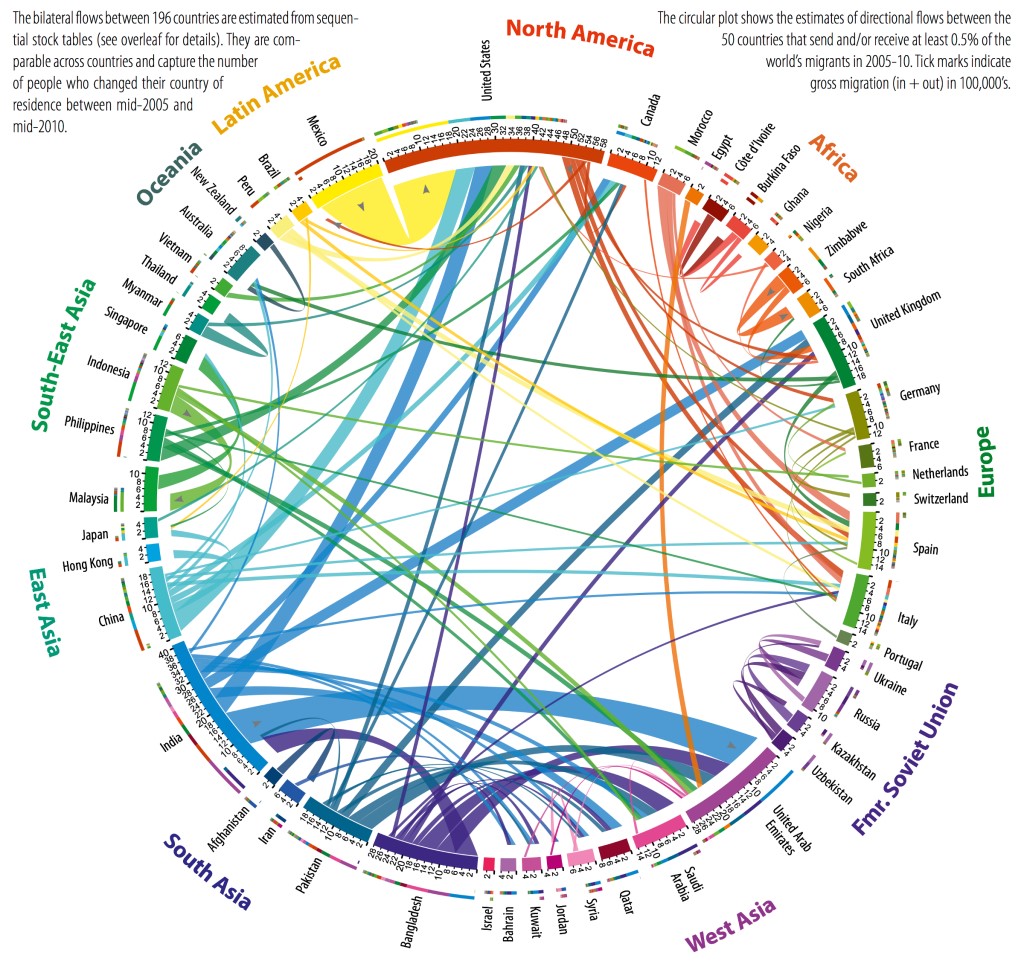The notion of Unreached People Groups (UPGs) has been an important one in world missions for a number of decades now. A UPG is usually understood to be a distinct ethnic group that is incapable of reaching itself with the Gospel. In other words, there are either no believers or so few believers in that people group that they would not ordinarily be able to reach their whole people group with the gospel without outside help. That means someone from outside must enter that community and begin to share both their lives and the gospel with people as they grow in learning the language and understanding the culture.
Now we are, of course, accustomed to thinking of unreached peoples as being somewhere “out there” – in strange and distant places. So we send suitably strange and intrepid folks we call “missionaries” out to those distant lands. And that’s how we play our part in “reaching the unreached.”
However, a relatively recent global phenomenon has given rise to a new buzzword and a new paradigm in world mission – “diaspora.” The word “diaspora” simply means “dispersion” or “scattering,” and it traditionally referred to Jews who were displaced because of the exile (have a look at John 7:35 and 1 Peter 1:1). But in the current context “diaspora” refers to all kinds of dispersed peoples who are living outside their place of origin. More people are moving around the globe both from and to more places than ever before. What we are saying here is that the scale and scope is unprecedented. It is so big that it creates a whole new challenge – and opportunity – for world mission, especially for reaching the unreached.

Consider the country of Afghanistan. There are not many places on earth so hostile to Christianity, so difficult to reach with the gospel. Yet in recent years tems of thousands of Afghans have moved to countries like the USA and Australia. And in referring just to “Afghans” I’ve already skated over the fact that Afghans are not simply Afghans – they are in fact Pashtun, Hazara, Tajik, Qizilbash, and so on. Each of these have their own distinct language, culture, historical background (and baggage), all of which means they each pose unique challenges for communicating the gospel.
In any case the broader point I am making is that each of these Afghan people groups would be considered “unreached.” But they are no longer just “out there” somewhere distant and hard to get to. They are practically on our doorstep. They are our neighbours, not just in the sense of proximity, but in the sense Jesus meant in the parable of the Good Samaritan – they are “strangers” among us who need help. Most of those coming from Afghanistan are deeply traumatised by war and conflict, they are fleeing oppression, and they need help adjusting to life in Australia. What might it look like for us to be good neighbours to them?
I have taken just this one country as an example. There are many more countries and people groups. Last time I checked the census data for Victoria, Australlia, it turned out that the largest unreached people group is the Punjabi people, who are mostly Sikh. Do you know how to find out what new, and perhaps unreached, people groups may have moved into your area?
So, do we still need specialised “cross-cultural workers” like the old-fashioned missionary types for this outreach to unreached diaspora peoples in countries like Australia? Absolutely. There is a still a lot of language- and culture-specific work to be done to effectively communicate the Gospel within unreached groups. Further, those who are dedicated to reaching a specific people group will ideally be working with a “whole people group” strategy. That is, they will be thinking about what is happening with that people group in other countries and especially in the country of origin. For example, they may encourage and help prepare those whom God calls to go back to their original country for the sake of the name of Jesus. Or they may work with new believers to prepare resources that can be used globally for that people group.
But here is the exciting new aspect of all of this: the local church does not simply send these “missionaries” off to work somewhere else, the local church remains directly involved in the work itself, alongside the “cross-cultural worker!”
Since diaspora people have moved from all over the world into our neighbourhoods, our churches are now their neighbourhood churches. For better or for worse, the local church will play a role in shaping their understanding of what it is the cross-cultural specialist is talking to them about in their own language. Local churches and members of the congregation may well be doing the things they would (or should) be doing anyway, but now there is a wonderful cross-cultural element – and a potential impact on unreached peoples!
Just to throw out a few examples: If the Church facility is a centre for practical helps such as a food ministry or play group, people from unreached groups might show up. Some may even come to services. Even if they don’t understand much, will they have a good experience of Christian community? Do you have any relevant language literature or other media on hand? And ordinary members of the congregation don’t need to be cultural specialists to be good neighbours and to offer a hand of friendship. Sometimes it might take just a little training in how to relate to people across cultures.
How can your local church play a part in reaching these unreached diaspora peoples? How can you partner with believers from an unreached group, or with cross-cultural workers who are focused on a particular people- or language-group? What kind of training for your local church do you need? What training is available?
